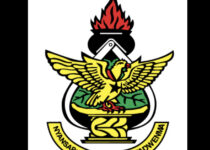KNUST BSc TELECOMMUINICATION ENGINEERING Admission Requirement and cutoff points for (2023/2024)
KNUST BSc Telecommunication engineering Admission requirement is very important to guide applicant in the process of selecting their course at KNUST.
In this article you are going to learn about KNUST BSc Telecommunication engineering, Admission requirement and the career paths available after graduation.
KNUST BSc TELECOMMUNICATION ENGINEERING course
The field of electrical engineering known as telecommunication engineering is responsible for the planning, creation, and upkeep of communication networks and systems. Radio, satellite, and other communication technologies are only a few of the tools used by telecommunication engineers.
KNUST BSc Telecommunication Engineering is designed to give students a foundation in the ideas and principles of telecommunication engineering. Students will often study topics including wireless communication, signal processing, and communication systems during the degree. Students will have the chance to participate in design projects and other hands-on learning opportunities that serve to solidify their theoretical understanding.
Graduates who complete the program successfully will be equipped for opportunities in a variety of telecommunications-related fields. Graduates may also continue their education in adjacent sectors like wireless communication and optical communication.
Careers
- Network design and planning
- System integration
- Research and development
- Technical sales
Duration of KNUST Telecommunication Engineering course
The KNUST BSc Telecommunication Engineering is a four-year degree program which leads to the award of BSc Degree in Telecommunication Engineering.
KNUST BSc TELECOMMUNICATION ENGINEERING ADMISSION REQUIREMENTS
Applicants must satisfy the university’s general requirements. To be qualified for admission prospective applicants must have the following requirements.
WASSCE/SSSCE APPLICANTS
- Credit passes in core subjects: English Language, Mathematics, and Integrated Science.
- Credit passes in elective subjects: Physics, Mathematic, Chemistry.
A’ LEVEL APPLICANTS
Five credits at O’ Level including English and Mathematics, plus
EITHER passes at A’ Level in: Physics, Mathematics, Pure Mathematics with an O’ Level credit in Chemistry.
OR passes at A’ Level in Physics, Chemistry, Mathematics
MATURE APPLICANTS
You must be 25 years of age to qualify at the time of submitting your applicant’s form.
Applicants can be with WASSCE/SSSCE or O level qualification.
KNUST BSc TELECOMMUNICATION ENGINEERING cut off point.
KNUST BSc Telecommunication Engineering cut off point play an important role in assisting applicants in the process of selecting their course at KNUST. Therefore, students who wants to apply must meet with the cut off points of the school before applying.
KNUST BSc Telecommunication Engineering cut off point is 11. Applicants must have credits in the following courses.
Three (3) core subjects English Language, Mathematics, Integrated Science or Social. Three (3) elective subjects: Physics, Mathematics, Chemistry. These courses must sum up to 11 or better for applicants to get admission.
For more information visit http://knust.edu.gh
How Do l Study BSc Telecommunication Engineering At KNUST
In order to study Telecommunication Engineering at KNUST you must first meet the admission requirements set by KNUST. This includes obtaining the required grades in your senior high school or equivalent exams.
You will need to apply for admission to KNUST through the university’s portal. The application process typically involves submitting your academic transcripts, personal statement and other requirement.
Interested student who want to study this course at KNUST should also remember that the decision on admitting you to study Telecommunication Engineering at KNUST is solely by the admission board of the university.
This means, you might choose BSc Telecommunication in your application, but KNUST may offer you a different course other than Automobile Engineering.
How Do l Apply To Study Telecommunication Engineering At KNUST?
Application for study admission at the Kwame Nkrumah University of Science and Technology (KNUST), is done both by online and hard copy application forms.
So, you can apply via online through the www.knust.edu.gh
Does KNUST Offer Telecommunication Engineering
Yes, the Kwame Nkrumah University of Science and Technology offer Telecommunication Engineering courses.
Prospective students who want to read Telecommunication engineering can apply for study admission at the university for the preferred qualification of the programme.
Does Telecommunication Engineering require math?
Yes, Telecommunication engineering requires math. In fact, mathematics is a fundamental aspect of any engineering field, including telecommunication engineering.
Is telecommunication a good filed?
Yes, there are plenty of prospects for people interested in working in the industry of telecommunications. Modern society depends heavily on the fast-developing field of telecommunication, which allows individuals to share information and communicate over great distances in real time.
What is the field of telecommunication?
The field of telecommunications is crucial to today’s society because it makes it possible for people and organizations to interact and share information quickly and effectively, as well as because it promotes the creation of new products and services that can make people’s lives better.
How much do telecom engineers make in Ghana?
The level of education, employment experience, and location all affect telecom engineers’ pay in Ghana, among other things. The estimated monthly income for a telecom engineer is GHS 14,000, with an average pay of GHS 6,000.
see also
KNUST BSc Environmental Science cut off points for (2023/2024)-see now
KNUST BSc Agriculture Engineering cut off points for 2023/2024-see guide


